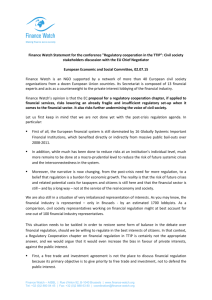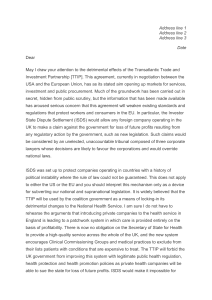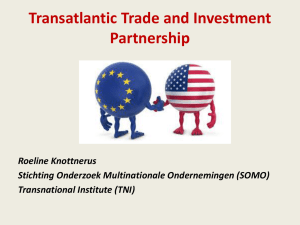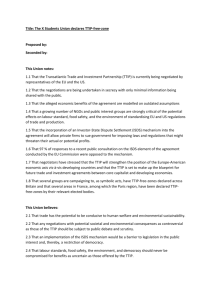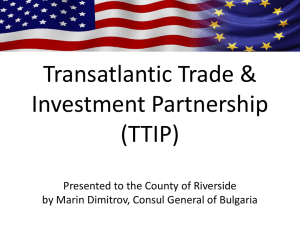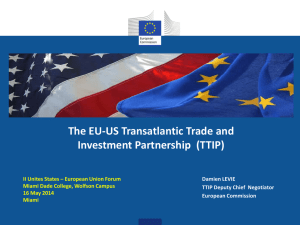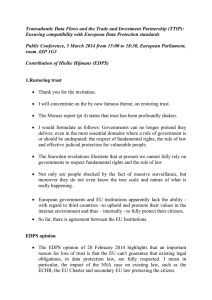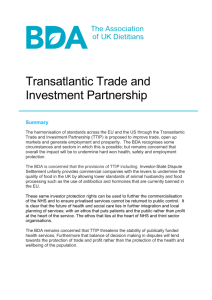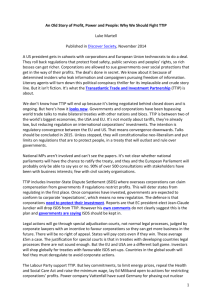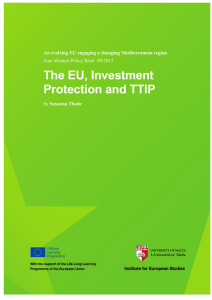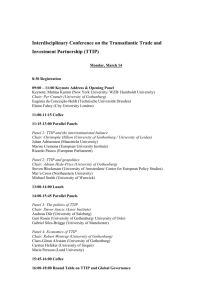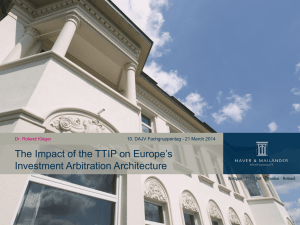A Worldwide Trend: Free Trade Agreements At least 110 countries
advertisement
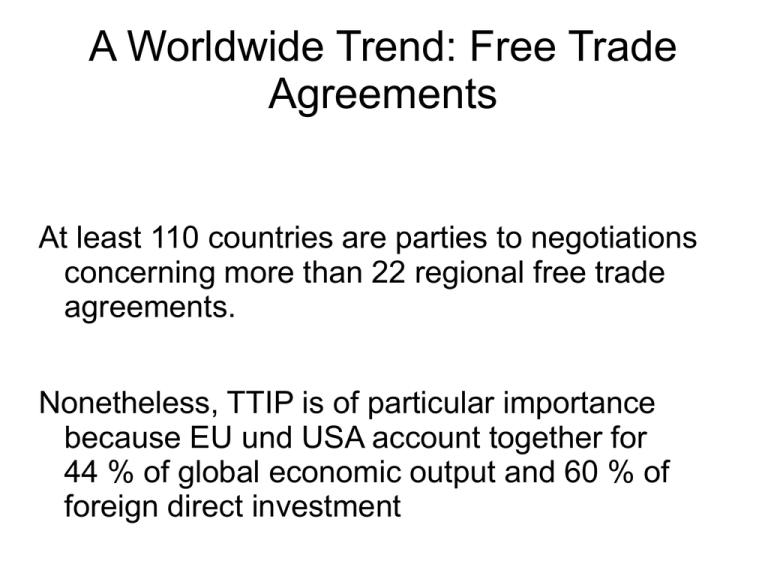
A Worldwide Trend: Free Trade Agreements At least 110 countries are parties to negotiations concerning more than 22 regional free trade agreements. Nonetheless, TTIP is of particular importance because EU und USA account together for 44 % of global economic output and 60 % of foreign direct investment Transatlantic Trade: A Daily Success Story Every single day, goods worth approximately 1.8 billion Euros are being exchanged between the US and Europe. Tariffs are already very low: According to WTO estimates, customs duties in the US are 3,5 % on average, and in the EU 5,2 % on average. This raises an obvious question: Why is a Free Trade Agreement needed at all ???!!! Currency Speculation: The True Barrier To Trade Currency speculation amounts to 5.3 trillion USDollars – every day The entire world trade amounts to about 18.4 trillion US-Dollars – a year. German Mark / Euro against the Dollar What TTIP aims at TTIP focuses on so-called „non-tariff barriers“, i.e. product regulations hindering the exchange of goods. An often cited example is the car industry: In Germany, wing mirrors have to fold in – but not in the US. TTIP is not a job machine A study for the EU commission came to the conclusion: A growth of 0,5 % is to be expected in the EU – over the next 14 years till 2027. This is 0,036 % per year A Telling Detail: Major Industries Are Not Keen on Free Trade The talks relating to chemical products have already been suspended. It turned out to be impossible to agree on a uniform concept of „risk“ that is acceptable to both the EU and the US Major trade unions are against TTIP because they do not expect any significant advantages for the export industry. Thus the question remains: Why TTIP? The real danger: TTIP will be a „living agreement“ Step 1: Americans and Europeans will initially only agree on standards which require little negotiating since they are already similar on both sides of the Atlantic Step 2: The agreement will stipulate that it is necessary to examine at a very early stage of each new law whether it has „material“ impact on trade relations. This would allow European and American companies to drastically expand lobbying activities – on both sides of the Atlantic What does TTIP mean for Greece? Trade relations between Greece and the US are rather weak. In 2010, Greece imported goods worth 536 million Dollar and exported goods worth 544 million Dollar (waterborne trade). The main export good of Greece is tourism – which is not included in TTIP. Nonetheless, TTIP might be extremely dangerous for Greece – due to the „investor protection clauses“ Special Rights For Investors Foreign companies can sue a country if they see their investments in danger. They can appeal to an international court of arbitration These courts have three members: a representative of the investor, a representative of the defendant state and a mediator „Indirect Expropriation“ Investors can appeal to arbitration courts whenever they believe to be „indirectly expropriated“. This can refer to consumer and environmental protection, land and raw material use, or minimum wages. Just one example: The Swedish energy corporation Vattenfall sued Germany to pay 3.7 billion Euro because it had to shut down two nuclear power plants Problems of a perverted law Courts of arbitration are ad hoc tribunals. In similar cases they come to very divergent decisions. Appeals are not permitted Court procedures are secret Governments often abandon laws if coprorations threaten to appeal to an arbitration court Foreign investors enjoy a privelege that domestic investors do not have Greece is very vulnerable Greece is particularly vulnerable to compensation claims: Due to the Euro Crisis the government will be forced to intervene continuously into the social and economic system
